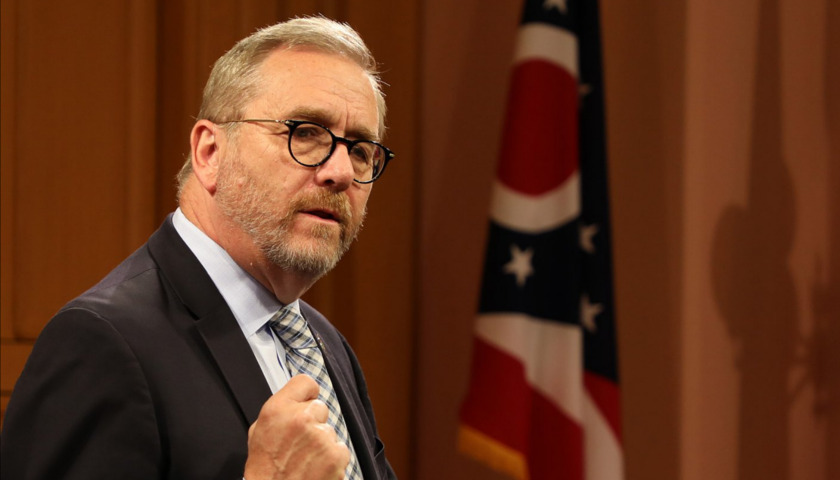Ohio Attorney General Dave Yost announced Monday that he filed an amicus curiae brief with the United States Sixth Circuit Court of Appeals backing three Ohio Christian Schools and a community organization that brought a lawsuit against the Toledo-Lucas County Health Department. The suit seeks to halt an order the department issued barring in-person learning for all students in grades 7-12 from December 4 to January 11.
Yost supports stopping the order, pending appeal, that prohibits in-person learning.
In addition to the appeal filed in mid-December, the schools filed an Emergency Motion on Tuesday to stop the health department order.
Monclova Christian Academy, Emmanuel Christian, St John’s Jesuit and Citizens for Community Values (CCV) are the plaintiffs. The Court demanded a response from the defendant – Toledo-Lucas County Health Department by Tuesday.
Toledo-Lucas Health Department responded through the Lucas County Prosecutor. In their response, it states:
[T]he District Court properly found that the Health Department’s school-closing order was constitutional, as such, it properly found that appellants did not have a likelihood of success on the merits of their First/Fourteenth Amendment religious freedom claims, and it properly denied them injunctive relief.
Consequently, the response concludes that the Court should deny the request for preliminary injunction.
At issue, according to Yost’s brief, is the Free Exercise Clause of the First Amendment – “Congress shall make no law respecting an establishment of religion, or prohibiting the free exercise thereof.”
The ‘friend of the court’ brief states:
The order, which is designed to combat the spread of COVID19, requires all schools, including religious schools, to cease providing most in-person classes. Yet it allows many categories of secular entities, such as casinos and gyms, to continue providing in-person services to their customers.
On its face “[t]his order violates the Free Exercise Clause. That Clause prohibits the government from discriminating against religion. And that prohibition on discrimination means that, “once a State creates a favored class of businesses,” it “must justify why [religious institutions] are excluded from that favored class.”
Yost expresses two reasons why Ohio has an interest in the matter. First, because Ohio has a compelling interest in stopping government overreach that violates “Ohioans free exercise of religion.” Second, after 10 months the Ohio Attorney General finds significant evidence that remote learning is causing more harm than good:
Arbitrary restrictions limiting in-person instruction for months on end have inflicted immeasurable harm on children. An injunction allowing the plaintiffs to provide in-person instruction will thus advance the State’s compelling interest in ensuring that Ohio’s children remain free to pursue a high-quality education.
Courts consider four factors when issuing an injunction, as Yost cites in the brief, concluding that the case brought by the three schools and CCV meets all the considerations to issue an injunction –
This Court asks four questions when deciding whether to issue an injunction pending appeal: “Is the applicant likely to succeed on the merits? Will the applicant be irreparably injured absent” an injunction? Will an injunction “injure the other parties? Does the public interest favor” an injunction?
The full brief can be viewed here.
_ _ _
Jack Windsor is Managing Editor and an Investigative Reporter at The Ohio Star. Windsor is also an Investigative Reporter at WMFD-TV. Follow Jack on Twitter. Email tips to [email protected].





